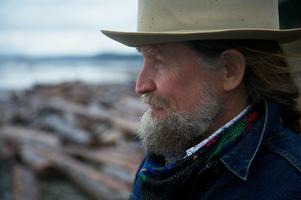Beyond Your Grief
For Beyond 50's "Personal Growth" talk, listen to an interview with Georgena Eggleston. She is a trained trauma specialist, grief guide, practitioner of the Rubenfeld Synergy Method, and author of "A New Mourning: Discovering the Gifts of Grief." She offers 4, simple self-help tools that to support you and those who love to lean into grief instead of being overwhelmed by it. They include practical, tested self-care strategies, listening touch, discovery and curiosity, and object permanence. You can use grief as a catalyst for growth and transformation.
Five Deaths in the Family
It was the loss of her brother, father-in-law, mother, father and teenage son within three and a half years that started her tedious journey of self-healing.
The death of her son, Reed, by what she called an impulsive suicide at 15 years old was the most devastating. It left Eggleston at times in a vortex of deep, dark grief.

Using the Rubenfeld Synergy Method
Besides the raw grief that was a mix of anger, loneliness, frustration, and guilt, Eggleston felt a gripping pain in her left shoulder, like a saber-toothed tiger ready to rip the arm off.
The first sign of release came from attending a Grief Relief workshop that was based on the Rubenfeld Synergy Method (RSM). Through a process of Listening Touch by the instructor, the pain left her body.
She once asked a Synergist, "Why is it that Grief brings up the deepest parts of ourselves longing to be healed?"
According to the Rubenfeld Synergy Method of Grief Relief, their first principle is that Grief Lives in One's Body. Anytime there is unprocessed grief and trauma, it gets stuck in our body, calling for our attention. This can show up in a number of ways: a chronic cough, sinus blockage, weight gain, physical pain, loss of sleep and other health issues.
Another principle is You've Got to Feel It to Heal It.
Through the gentle act of Listening Touch, Eggleston learned to work with others by connecting with their bodies as part of her training.
"This method allows for the release of their traumatic emotions as the 'story' of their life is told," she explained. The process allows the body to dislodge bio-energetic blocks so it can re-balance itself and heal.
A recommendation for moving through the grief is practicing self-care. For Eggleston, that meant having a deeper connection to her still, small voice within and trusting herself more in a loving way. She would at times ask herself, What is the most kind and loving thing I can do, be, or have for myself in this moment?"
As grievers recognize that grief is a gift, they can intentionally shift feelings of despair to curiosity.
And through the principle of Object Permanence, "a griever can shift the feelings of longing to the confidence that the beloved continues to live on and communicate from the other side," explained Eggleston.
Like
a child looking for it's mother who is in another room. She can't be
seen, but is still there. Loved ones who have passed on are like that.
They have moved to another room, out of our sight.
Subscribe to Beyond 50's Radio Updates!
Beyond 50 values your personal information. Your email will
not be used, sold, or
shared with any outside party.
Related Interviews:

Stephen Jenkinson: Way of Grief

Grief Recovery for Pet Loss

How to Deal with Loss from a Zen Perspective
Recommended Reading:






